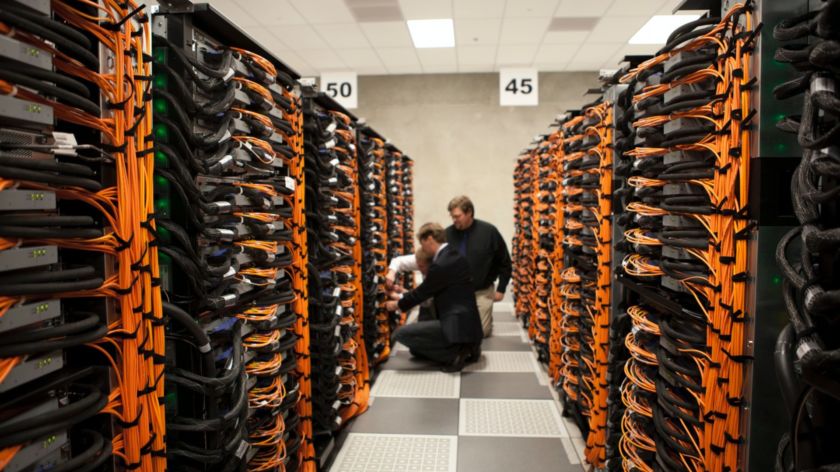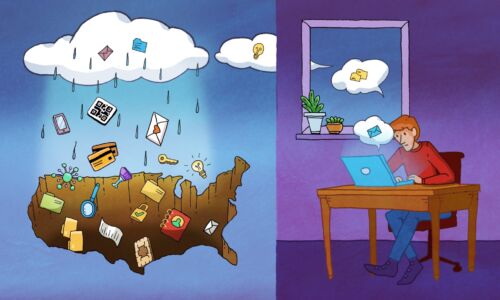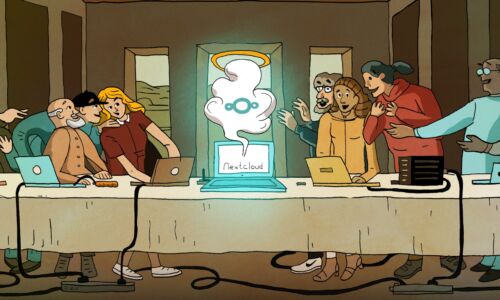How a malfunction in Paris stopped digital lectures
-
 Een datacentrum van de University of Chicago. Foto: unsplash.com
Een datacentrum van de University of Chicago. Foto: unsplash.com
Teachers couldn't upload any new web lectures last week, because of a malfunction. For students, this meant that they had to miss lectures, because during the corona crisis, online education is all they have. How did this happen? An answer in five questions.
1. What happened?
A massive malfunction in the night between Saturday the 5th and Sunday the 6th of September made it impossible for teachers to upload new lectures for a week, and for students to watch the video’s of these classes. Lectures that had been recorded before the 31st of August were still available. ‘We regret that students had to miss lectures because of this’, says Jos in den Bosch on behalf of the service Weblectures, which supports digital classes at Radboud University.
2. How many lectures were affected?
In den Bosch estimates that about a hundred new lectures were unavailable because of this. The problem caused quite some resentment among students, who depend on digital classes this year. As a solution, some teachers used lectures that were recorded earlier. How many students were affected by the malfunction remains unknown, but normally, about a thousand students a day watch web lectures, says In den Bosch.
3. How did this happen?
The cause of the problem lies with the French ICT company Ubicast. That company got a contract with the university in 2014, and became responsible for the data storage around web lectures. All classes are stored in the data center of the company, in Paris. In den Bosch: A data center like that consists of hundreds of hard drives which communicate with each other. Every drive holds a piece of a lecture.’ During a safety check, something went wrong and the system shut itself down. ‘We don’t know what caused that exactly,’ says In den Bosch.
Radboud ICT employees couldn’t do much more that contain the damage. ‘Last week’s Monday (7th of september, ed.) we decided to switch to the back-up environment, so that students could still watch older classes.’ In the meantime, there was a lot of e-mailing and calling France to get all the systems back in order. Last Saturday, the situation was solved and since then, it is possible to upload web lectures again.
4. Can this happen again?
‘The possibility of something breaking always exists,’ says In den Bosch. ‘But there are options to minimalise that chance.’ The main thing he has in mind is a hot-standby environment, during with a completely separate data system is installed. If the first system breaks, the other one can take over all its tasks. The big difference with the current back-up system is that uploading is still possible then.
The question is who will pay for this upgrade. ‘This requires an investment of hundreds of thousands of euros. According to us, those costs are for the supplier,’ says In den Bosch. ‘He admits that the university cannot force Ubicast to build a seperate system like that. ‘But the contract says that web lectures have to be available 99,9 percent of the time. We will do everything in our power to hold the company accountable for that.’
5. How is the relationship between Radboud University and Ubicast?
The French company advertises the cooperation with Radboud University proudly on its website and names it a ‘success story’. The question remains whether that feeling is mutual. ‘At the moment, we are in contact with them 24 hours a day, we work together,’ says Van den Bosch. ‘On the other hand, we cannot just skip past this.’ A letter with a complaint has to communicate that this malfunction was unacceptable.
Early in 2021, the contract ends and other companies can make a bid to handle the university’s online classes. Ubicast can just bid again, says In den Bosch. ‘We do want to add to the contract that a malfunction like this can never happen again.’



